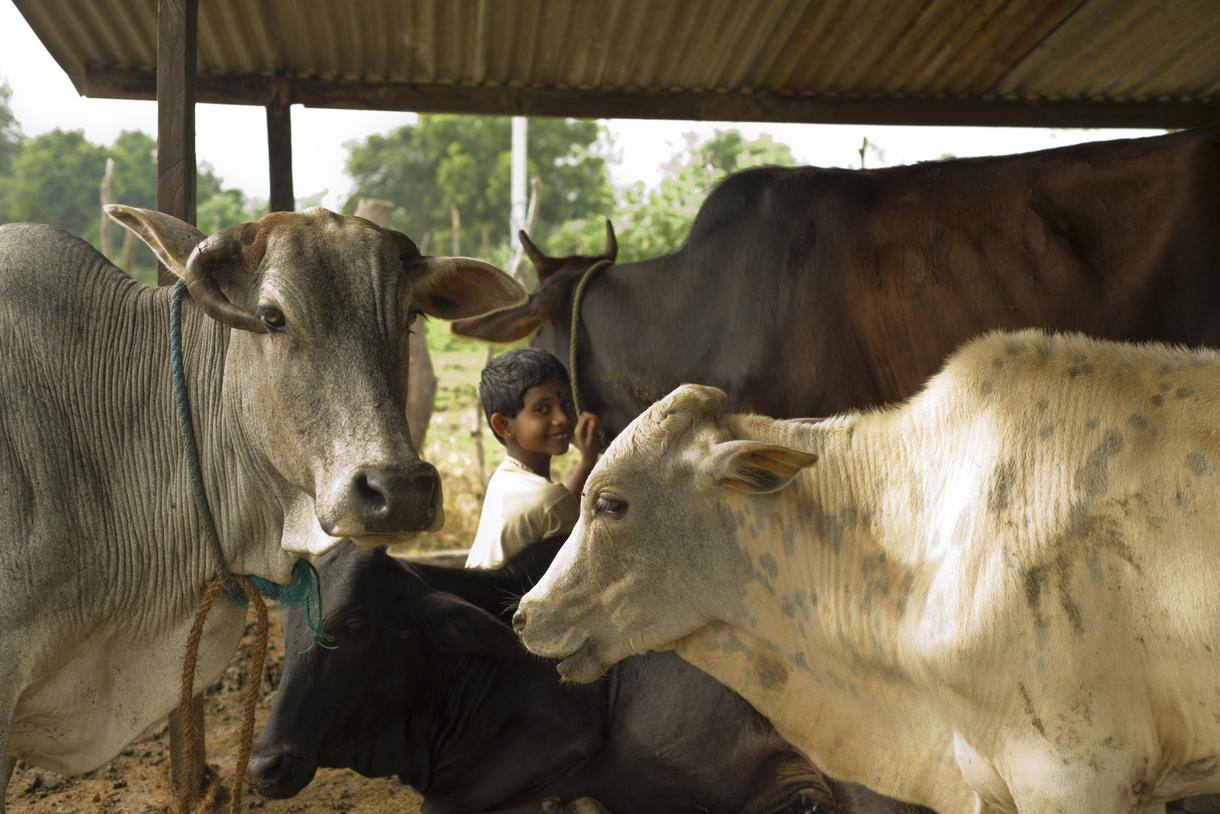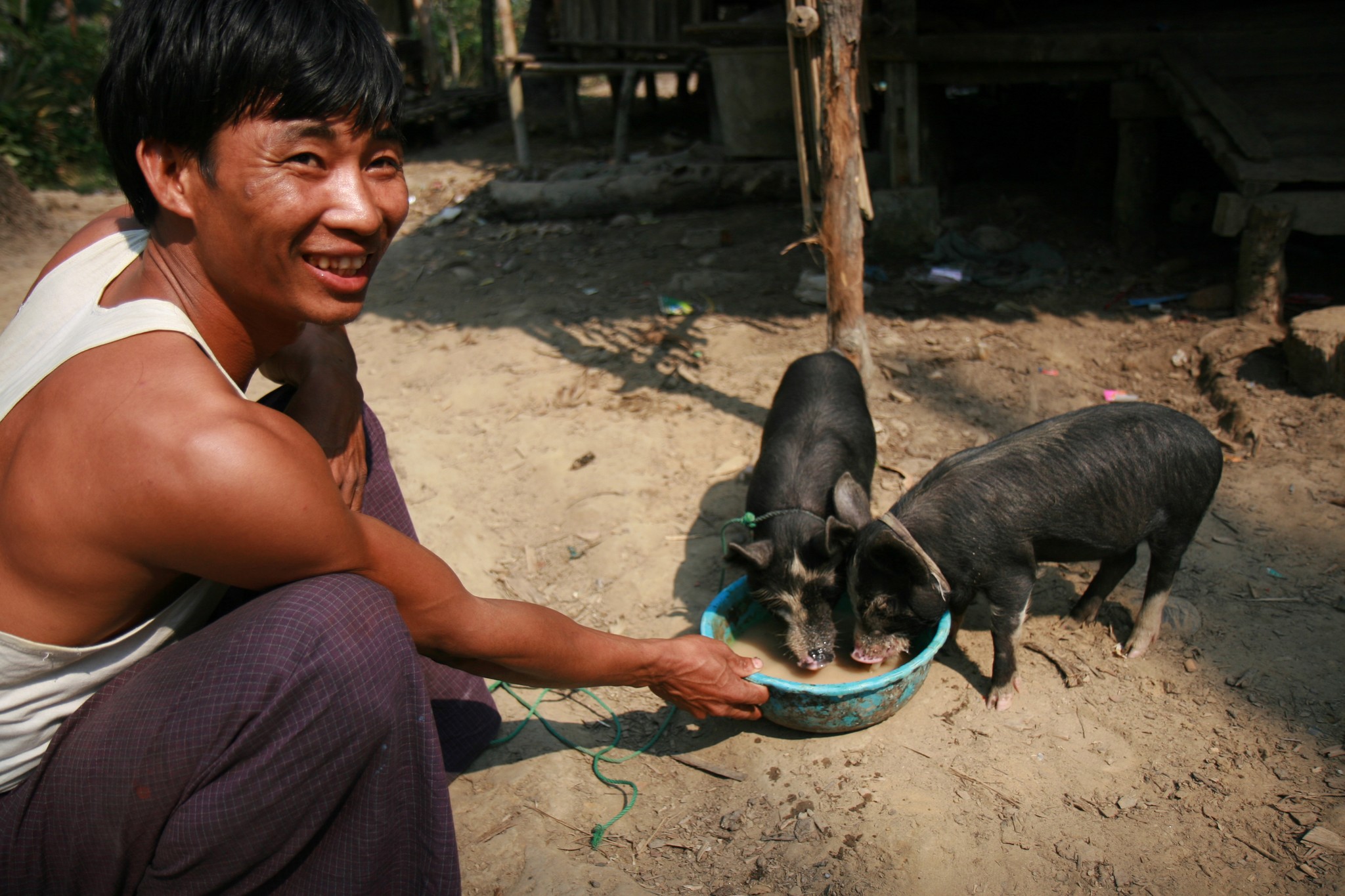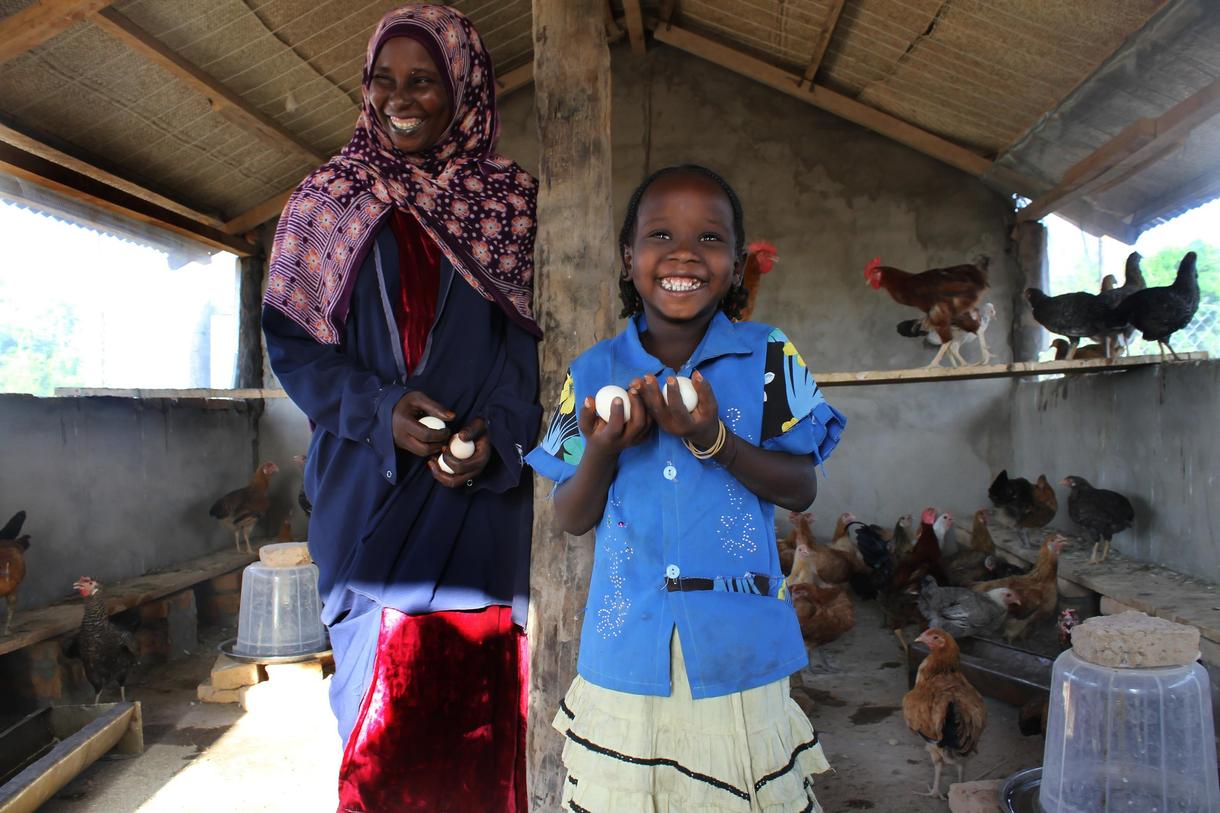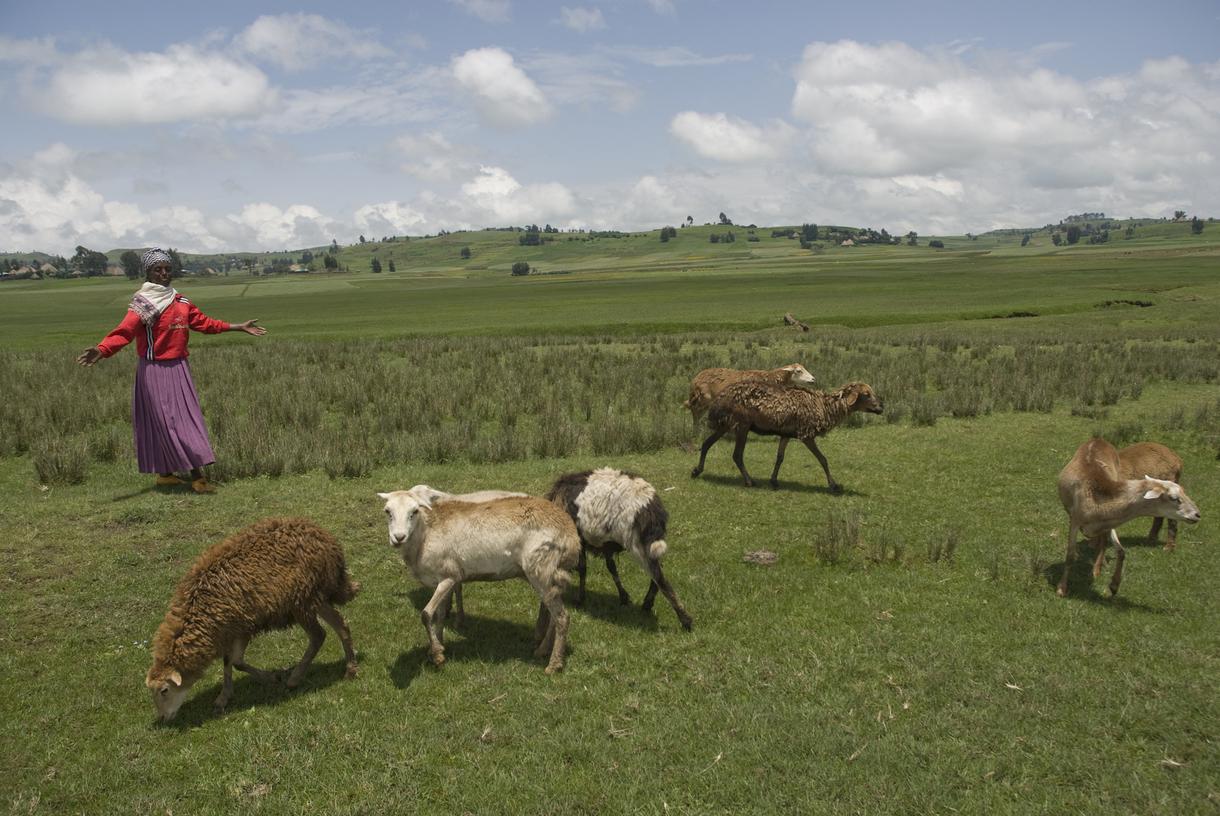A story of two little pigs, and three other tales, about the important role animals play in many households.
Who doesn’t love a good animal story—especially when it’s about the deep connection between four-legged creatures and the two-legged humans who depend on them? In a nutshell, that’s what Oxfam’s work with livestock is all about: the essential role cows and pigs, sheep and goats play in ensuring the well-being of the families who own them.
In many communities around the world, ruminants and other animals, bristly or feathered, serve as the financial backbone for poor families, helping them feed their children, pay for doctor bills, and cover school fees. That’s why, when disaster strikes, Oxfam’s emergency responses often include support for this vital household asset. Sometimes, that means providing veterinary care so herds can stay strong. It can also mean ensuring that livestock has food to eat and water to drink. And it can even mean replacing animals swept away by storms.
Without their animals, many families would slip deeper into poverty. They wouldn’t have milk or eggs to sell in the market. There would be no breeding of kids or lambs, calves or piglets for later sale. And there would be no meat or dairy products to bolster family diets.
So when Oxfam is considering ways it can help people help themselves, animals are often at the heart of those projects. They are the means of making a living, and hold the promise of a better future for families. Here are some of our favorite examples.
Dressed for success (with the milking)

“All our cows know me and my daughters,” said Sayantha, a 35-year-old mother of two children who was soon to be the head of a new dairy cooperative in the Vavuniya district in Sri Lanka. “They call out to us when they need something and they recognize us.”
People in this region, where conflict has taken a toll, depend on their cows for milk, but the yield is often low. So Oxfam has been helping farmers establish dairy cooperatives through which they would receive training in animal husbandry along with the opportunity to take out loans for the purchase of better breeds of cows.
One of the goals of the project is to help empower women, enabling them to improve their status and earning potential. Sayantha, a widow, was well on her way—and not the least because of the magic touch she seems to have with her cows.
“They can be really funny,” she said. “You know, they will only let me milk them if I’m wearing this one dress. I’ve had to wear it every morning for the milking for two years now. If I wear anything else, they won’t let me milk them. It smells really bad, but what can I do? They are funny.”
Searching for meaningful holiday gifts? Give a cow from Oxfam America Unwrapped and provide a family with an entire economic support system.
Piglets, by the pair

Hla Aya and Thin Thin Soe, a husband and wife team, make their living as day laborers working in the rice paddies in Myanmar. When Cyclone Nargis struck in 2008, it wiped out all that they owned, including the family’s pig—an asset they couldn’t afford to replace. And they weren’t alone.
The storm left devastation in its wake, destroying or damaging homes, water supplies, roads, bridges, and boats. To help families like Soe’s and Aya’s recover, Oxfam distributed a pair of piglets to 20 households in their village. It was part of plan that included reaching 43 villages and delivering 800 piglets—all to be purchased nearby to help boost the local economy.
Aye couldn’t stop smiling when he was asked about his pair—a male and a female—two weeks after receiving them.
“We’re happy because these piglets will make us more (financially) comfortable,” he said. “If the pigs breed, we’ll be able to sell the piglets.” Doing some quick math, he figured how long it would take before the sow might get pregnant and produce, with luck, a litter of five to 10 babies. At a month and a half old, each of the piglets could be sold—helping the couple meet the dreams they have for their two children.
“If we have money, we will send them to school,” said Soe.
Give a loved one a pig this holiday season. Shop Oxfam America Unwrapped and find unique gifts that help fight poverty around the world.
Chickens in Chad

With climate change, the droughts in Chad are getting longer and rainfall less predictable, making farming an ever more precarious enterprise for people living in this landlocked country. But a degree of security has now marched—on two bony legs topped by a bundle of feathers—into the life of Mariam Maussa, a mother of seven children.
With Oxfam’s help, she has started a chicken cooperative.
“I used to keep chickens in my house, but I couldn’t rear enough to feed my family and the community,” said Maussa. “I thought it would be better to get the women together to form a co-op , so I asked Oxfam for support.”
Maussa is now leader of the co-op, which manages a large flock. Co-op members are responsible for breeding and raising the chickens, spotting disease, vaccinating the birds, and regulating egg production.
“When I first suggested the idea to the women they said ‘Mariam has gone mad’,” she recalled. “But now the women see that the project is working. Even people from other communities come to see it. . . . We are very focused on our work.”
Give a pair of chickens from Oxfam America Unwrapped and create a nest egg for a family living in poverty.
Counting sheep—she’s up to eight

Nimble in her plastic shoes and billowing skirt, Yeshi Senyi strode across the water-logged fields near her home in Ethiopia’s North Shewa zone leading a stream of visitors toward a small flock of sheep. They were hers—a slowly expanding herd started with the help of Oxfam’s local partner, Organization for Development in Action, or ODA.
Restocking sheep and helping local women launch a series of self-help groups are part of ODA’s two-pronged plan to tackle poverty in a region that—despite its water-logged plains—also suffers from increasing bouts of drought, preventing families from growing enough food to feed themselves.
Through the program, 250 women each received five sheep and as they reproduced, some of those lambs were to be given to another 250 women, thereby increasing the assets of 500 women-headed households. The goal was for each participant to build a small herd of eight to 10 sheep—a sustainable resource that would provide their families with both food and income.
"A person with property is respected," Senyi had said shortly after the distribution, noting that having assets could help her get a loan if she needed it. "A person with property has hope for the future—and confidence."
Senyi seemed to have both. Opening her arms wide, she herded her sheep together and introduced the visitors to her son, Adissu Hailu, who had been keeping an eye on the flock. It numbered eight now. Of the original five Senyi had received, one had died. The others had given birth, allowing her to give three lambs away to another program participant and then to begin increasing her flock.
Widowed for some time and the mother of seven children, Senyi has worked hard to ensure that they have had a chance to go to school. And in fact, one of her sons has become a teacher in a nearby community.
“I am so, so, so happy,” said Senyi.
Raising sheep allows poor families to create their own income. Make a difference this holiday with the gift of a sheep from Oxfam America Unwrapped.
